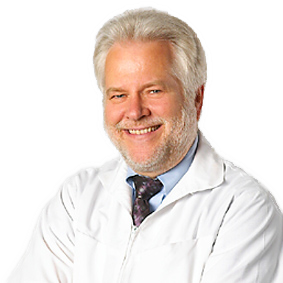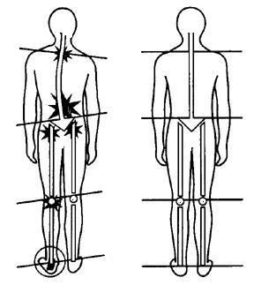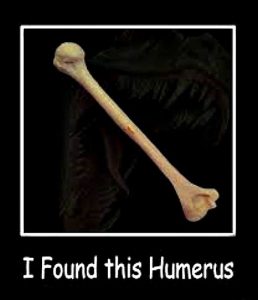Courtesy of:
John H. Keefe III, D.C.
(918) 663-1111
DIET: What Are Dates Good For? When it comes to the number of minerals, vitamins and health-benefiting phytonutrients in dates, suffice it to say there are a lot of them. They're also easily digested, allowing your body to make full use of their nutritional value. Dietary fiber in dates helps to move waste smoothly through your colon and helps prevent LDL (bad) cholesterol absorption. It may also bind with substances that can decrease biological compounds that cause cancer. The iron content in dates, a component of hemoglobin in red blood cells, determines the balance of oxygen in the blood. Potassium, an electrolyte, helps control your heart rate and blood pressure. B vitamins in dates, such as the carotenoids lutein and zeaxanthin, are absorbed into the retina to maintain optimal light-filtering functions and protect against macular degeneration. Additionally, dates contain vitamins A and K. Vitamin A protects the eyes, maintains healthy skin and mucous membranes, and even protects the lungs and mouth from developing cancer. Tannins, which are flavonoids as well as polyphenolic antioxidants, fight infection and inflammation and help prevent excessive bleeding (anti-hemorrhagic). Vitamin K is a blood coagulant that also helps metabolize your bones. Copper, magnesium, manganese, zinc, niacin, pantothenic acid and riboflavin are also present in dates and provide their own unique preventive and healing functions. Together, these cofactors help your body metabolize carbohydrates, protein and fats. Eating dates in moderation can contribute many health benefits, such as protecting against damage to cells from free radicals, helping lower the risk of stroke, coronary heart disease and the development of colon, prostate, breast, endometrial, lung and pancreatic cancers
IN THE NEWS: What Is Pine Oil? Pine oil has antimicrobial, antibacterial, antifungal, antiseptic and antirheumatic properties. It works as a good decongestant and expectorant for respiratory ailments as well. In aromatherapy, pine oil is indicated and used for cuts, lice, excessive perspiration, scabies, sores on the skin, arthritis, gout, muscular aches and pains, asthma, bronchitis, common colds and flu, and fatigue. Pine oil is also a natural analgesic and anti-inflammatory agent, which makes it a potential substitute for nonsteroidal anti-inflammatory drugs (NSAIDs) that come with many side effects. Pine oil is not only valued for its health benefits, but also for its practical uses. This essential oil can be used as: Fragrance — You can use a few drops of pine oil as fragrance when making your own soaps, detergents, lotions, candles and ointments. Insect repellant — To protect your wool sweaters from moths and other insects, pour 10 drops of pine oil onto small pieces of untreated wood. Place the pieces of wood in your closets or drawers. Air freshener — Eliminate the awful smell of cigarettes and stale air by adding four drops of pine oil to a cup of water. Pour the mixture in a spray bottle, shake it well and spray it to instantly freshen up your room. Avoid spraying it on furniture. Massage oil before and after exercise — Create your own pre- and post-workout massage oil to inhibit or soothe strained muscles. Add three drops of pine oil, juniper berry oil and rosemary oil in 2 ounces of jojoba oil. The most common ways to administer pine oil are orally, topically and through inhalation.
CHIROPRACTIC: 10 Researched Benefits of Chiropractic Adjustments One of the best things about receiving chiropractic adjustments is that they are a completely drug-free path to healing the body naturally. Chiropractic benefits including helping to naturally improve problems such as: Back pain-Headaches-Bowel regularity-Improved mental clarity-Ear infections-Neck pain-Arthritis and joint pain-Scoliosis-Asthma-Blood pressure-Healthy pregnancy-Organ function-Surgery prevention. the very first chiropractic patient in history was named William Harvey Lillard, who experienced difficulty hearing due to compression of the nerves leading to his ears. He was treated by “the founder of chiropractic care,” David. D. Palmer, who gave Lillard spinal adjustments in order to reduce destructive nerve compressions and restore his hearing. After doing extensive research about physiology, Palmer believed that Lillard’s hearing loss was due to a misalignment that blocked the spinal nerves that controlled the inner ear (an example of vertebral subluxation). Palmer went on to successfully treat other patients and eventually trained other practitioners how to do the same. The first college of chiropractic was founded in 1897 and named after Palmer, called the Palmer Chiropractic School & Cure.
FUNNY BONE: What do you get when you cross-breed a shark and a cow? I have no idea but I wouldn’t try milking it.@@ I just got a photo from a speeding camera through the mail. I sent it right back – way too expensive and really bad quality.@@ Husband brings the child home from kindergarten and asks his wife, "He’s been crying the whole way home. Isn’t he sick or something?" "No," replies the wife, "he was just trying to tell you he isn’t our Frankie."@@ 8 p.m. I get an SMS from my girlfriend: Me or football?! 11 p.m. I SMS my girlfriend: You of course.@@ Two police officers crash their car into a tree. After a moment of silence, one of them says, “Wow, that’s got to be the fastest we ever got to the accident site.”@@ A nice old lady on a bus offers the driver some peanuts. He’s happy to take some. He asks her after a while why she isn’t having any herself. “Oh, young man,” she says, “they’re too hard on my poor teeth, I couldn’t.” “Why did you buy them at all then?” wonders the driver. “You see, I just love the chocolate they’re covered in!”
Visit our web sites: keefeclinic.com & facebook.com/keefeclinic





